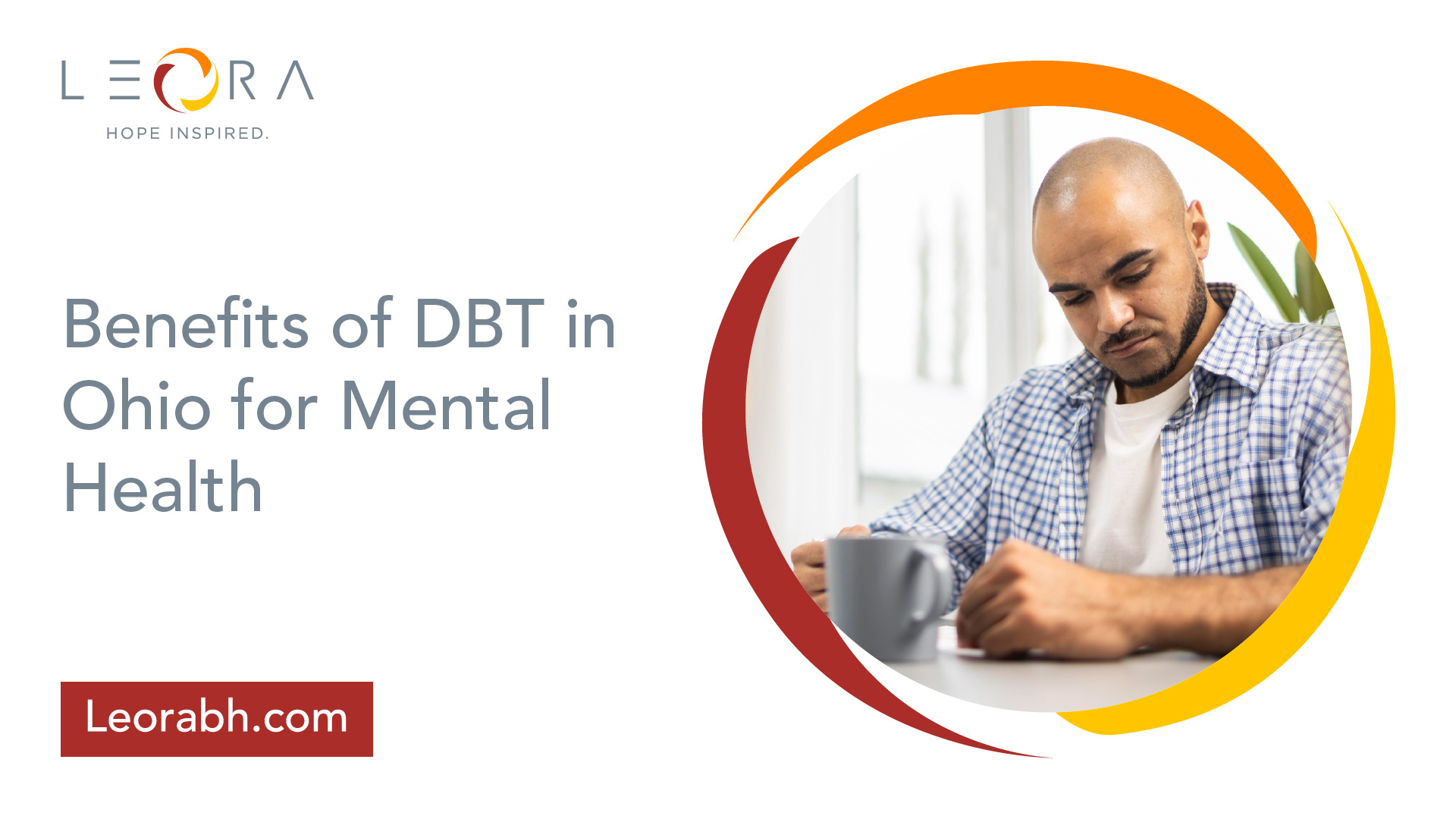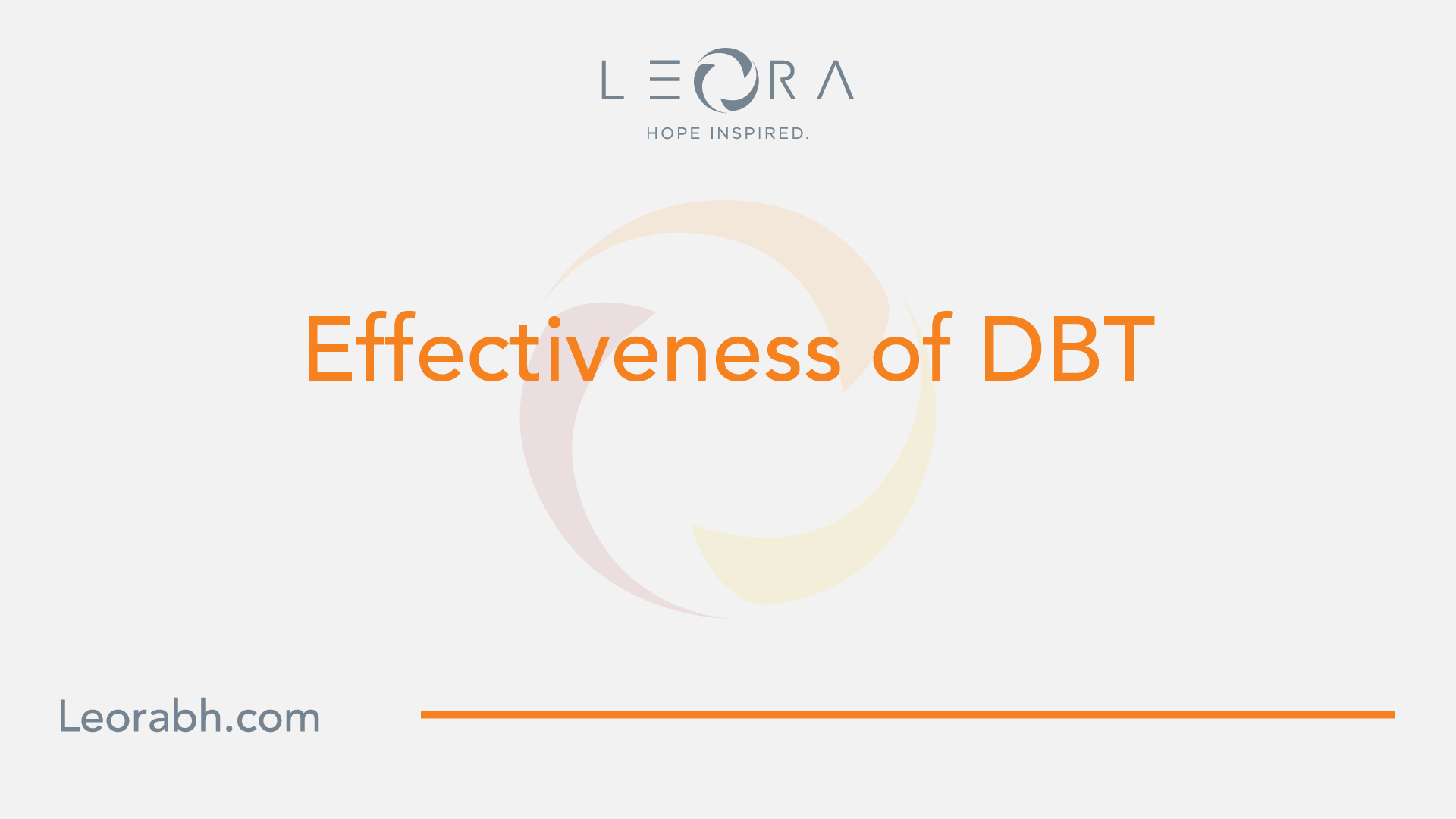Benefits of DBT in Ohio for Mental Health
Discover the benefits of DBT in Ohio for mental health. Find treatment facilities, learn coping strategies, and achieve emotional regulation. Transform your life!
Understanding DBT Therapy
Dialectical Behavior Therapy (DBT) is an evidence-based therapy that has shown great potential in improving various mental health conditions and overall quality of life. Developed by an American psychologist in the 1970s, DBT focuses on accepting oneself without judgment while working on changing negative behaviors.
Origins of DBT
Originally designed to treat borderline personality disorder, DBT has evolved to be utilized for a wide range of mental health issues across different age groups, from teens to older adults. The American Psychiatric Association has endorsed DBT as an effective treatment for borderline personality disorder. However, its applications have expanded to include conditions such as eating disorders, self-harm, substance use disorders, and more.

Applications of DBT
DBT is particularly effective for individuals who struggle with managing and regulating their emotions. It provides tools and strategies to cope with challenging emotions and behaviors. Some of the mental health conditions that can be effectively treated and managed with DBT include:
- Borderline personality disorder
- Eating disorders
- Self-harm
- Substance use disorders
- Depression
- Anxiety disorders
- Post-traumatic stress disorder (PTSD)
By focusing on building skills to manage emotions, improve interpersonal relationships, and develop coping mechanisms, DBT offers hope and support for individuals facing these mental health challenges. In Ohio, there are several treatment facilities that offer DBT as part of their comprehensive therapy programs.
DBT is a powerful therapeutic approach that has shown promising outcomes for individuals struggling with various mental health conditions. In the next sections, we will delve deeper into the components of DBT and the specific skills and techniques used in the therapy process.
Components of DBT
Dialectical Behavior Therapy (DBT) is a comprehensive treatment approach for individuals facing mental health challenges. It consists of several key components that work together to provide effective care and support.

Structured Process
DBT involves a structured process that includes a combination of individual therapy sessions, group skills training, and telephone crisis coaching. This comprehensive approach ensures that individuals receive the necessary support and learn essential skills to manage their emotions and improve their overall well-being.
- Individual Therapy: In individual therapy sessions, individuals work closely with a DBT therapist on a weekly basis. These sessions typically last around 45 to 60 minutes. During these sessions, individuals have the opportunity to discuss their concerns, explore their emotions, and develop strategies for coping with difficult situations. Diary cards may be used to track emotions and actions, providing valuable insights for therapy sessions.
- Group Skills Training: Group skills training sessions are an integral part of DBT. These sessions provide a supportive environment where individuals learn and practice specific skills to improve emotion regulation, cope with intense emotions, and enhance interpersonal relationships. Group sessions offer opportunities for individuals to share experiences, gain insights from others, and receive guidance from a trained facilitator [3].
- Telephone Crisis Coaching: DBT may also include telephone crisis coaching as part of its structured process. This means that individuals have access to their therapist outside of scheduled sessions for support during times of crisis or emotional distress. The availability of crisis coaching via phone provides individuals with immediate guidance and assistance when they need it most.
Four Stages of Treatment
DBT treatment consists of four stages that individuals progress through as they work towards their therapeutic goals. Each stage focuses on specific areas of growth and development, allowing individuals to build essential skills and address different aspects of their mental health.
- Stage 1: The first stage of treatment emphasizes stabilizing urgent concerns, such as harmful behaviors and emotional dysregulation. During this stage, individuals learn strategies to manage crises and gain control over impulsive behaviors. The primary goal is to achieve behavioral stability and reduce self-destructive patterns.
- Stage 2: In the second stage, individuals focus on developing skills to identify and manage their feelings more effectively. They learn techniques for emotional regulation, including mindfulness, distress tolerance, and interpersonal effectiveness. The aim is to enhance emotional resilience and improve coping mechanisms.
- Stage 3: The third stage involves setting personal or professional goals, building stronger relationships, improving self-esteem, and finding more joy in life. Individuals work towards creating a life worth living by addressing obstacles, enhancing self-worth, and cultivating fulfilling experiences [1].
- Stage 4: The final stage of treatment focuses on maintaining progress and integrating the skills and strategies learned throughout the therapy process into daily life. Individuals continue to refine their skills, deepen their understanding, and apply their knowledge to navigate future challenges with resilience.
By following this structured process and progressing through the four stages of treatment, individuals can experience significant improvements in their mental health and overall well-being. DBT offers a comprehensive approach that addresses a wide range of mental health conditions and provides individuals with the tools they need to lead fulfilling lives.
Effectiveness of DBT
Dialectical Behavior Therapy (DBT) has proven to be an effective treatment for various mental health conditions. It provides individuals with the skills and tools necessary to manage their emotions, improve relationships, and enhance their overall quality of life. Let's explore the mental health conditions treated by DBT and the success stories and outcomes associated with this therapy.

Mental Health Conditions Treated
Originally developed to treat borderline personality disorder, DBT has evolved to address a wide range of mental health issues across different age groups, from teens to older adults. It is endorsed by the American Psychiatric Association as an effective treatment for borderline personality disorder. In addition to borderline personality disorder, DBT is also commonly used to treat:
- Depression
- Anxiety disorders
- Bipolar disorder
- Substance use disorders
- Eating disorders
- Post-traumatic stress disorder (PTSD)
- Self-harm behaviors and suicidal ideation
DBT provides individuals with the necessary skills to regulate their emotions, cope with stress, and navigate challenging situations. By learning these skills, individuals can experience improved mental well-being and enhanced overall functioning.
Success Stories and Outcomes
DBT has been instrumental in transforming the lives of individuals struggling with various mental health conditions. Success stories are abundant, showcasing the positive impact that DBT can have on individuals' lives.
While specific outcomes may vary depending on individual circumstances, DBT has been associated with several positive outcomes. These include:
- Reduced self-harm behaviors
- Decreased suicidal ideation
- Improved emotion regulation
- Enhanced interpersonal skills
- Increased ability to cope with distress
- Better overall quality of life
The comprehensive nature of DBT, which combines individual therapy, skills training groups, phone coaching, and therapist consultation teams, contributes to its effectiveness in facilitating positive outcomes [4].
DBT therapy at Ohio Community Health Recovery Centers and other treatment facilities in Ohio offer access to DBT as part of a comprehensive treatment plan for individuals with drug addiction, alcoholism, and co-occurring mental health disorders like depression, anxiety, and PTSD. These success stories highlight the transformative power of DBT in helping individuals overcome challenges and improve their mental well-being.
By providing individuals with the necessary skills to manage their emotions, cope with stress, and develop healthier behaviors, DBT offers hope and support for those seeking to improve their mental health and lead more fulfilling lives.
DBT in Ohio
When seeking Dialectical Behavior Therapy (DBT) for mental health in Ohio, individuals can find various treatment facilities that offer DBT programs to cater to their specific needs. These facilities provide a supportive environment where individuals can learn and apply DBT skills to improve their emotional well-being.
Treatment Facilities
One notable treatment facility in Ohio that incorporates DBT into their programs is the Lindner Center of HOPE in Cincinnati. They offer residential treatment programs that integrate DBT along with other evidence-based modalities such as cognitive behavioral therapy (CBT), exposure and response prevention (ERP), and motivational interviewing, among others. Additionally, Ohio Community Health Recovery Centers in Cincinnati offers access to DBT treatment as part of a comprehensive treatment plan for drug addiction, alcoholism, and co-occurring mental health disorders like depression, anxiety, and PTSD.
By seeking treatment at these facilities, individuals can benefit from the expertise of trained professionals who understand the complexities of mental health conditions and are equipped to guide them on their journey to recovery.
Cost and Duration
The cost of DBT therapy in a residential mental health facility in Ohio can vary based on factors such as location, amenities, staff credentials, and program duration. Insurance coverage may also impact out-of-pocket expenses. It is recommended to contact the specific treatment facility for more information regarding the cost of their DBT programs.
The duration of DBT therapy in a residential setting in Ohio can range from several weeks to several months. The length of treatment depends on the severity of the individual's condition and their progress during therapy. Each person's journey is unique, and the duration of treatment is tailored to meet their specific needs and goals. It is important to remember that the commitment to the therapy process plays a significant role in achieving positive outcomes.
If traveling is an option, seeking DBT treatment outside of one's immediate environment can offer advantages such as a change of scenery, removal from familiar triggers and stressors, a sense of anonymity, and the ability to focus solely on recovery without the distractions of daily life. Exploring different treatment facilities in Ohio and considering their offerings, costs, and durations can help individuals make informed decisions about their DBT journey.
By accessing treatment facilities that offer DBT programs in Ohio, individuals can receive the necessary support and guidance to develop coping strategies, regulate emotions, and lead a more fulfilling life.
DBT Skills and Techniques
In Dialectical Behavior Therapy (DBT), individuals learn a variety of skills and techniques to help them effectively cope with and regulate their emotions. Two key skills taught in DBT are mindfulness and coping strategies for emotional regulation.
Mindfulness and Relaxation
Mindfulness is a core component of DBT and involves being fully present in the moment, without judgment or attachment to thoughts and emotions. Practicing mindfulness allows individuals to observe their thoughts, feelings, and bodily sensations without getting caught up in them. In Ohio, individuals like Ana, Ally, Daphnée, Kayla, and Mary have found mindfulness skills particularly beneficial in their DBT journey. Mindfulness helps them slow down, stay focused, and manage emotional control. Ana and Kayla specifically highlight the positive impact of mindfulness in their lives, leading to increased relaxation and calmer states of mind.
To cultivate mindfulness, individuals can engage in various techniques such as deep breathing exercises, body scans, and meditation. These practices enhance self-awareness, reduce stress, and promote a sense of calm and well-being. By incorporating mindfulness into their daily lives, individuals can develop a greater capacity to handle difficult emotions and navigate challenging situations.
Coping Strategies and Emotional Regulation
DBT equips individuals with coping strategies and techniques to manage intense emotions and enhance emotional regulation. One commonly used coping skill is the STOP technique (Stop, Take a step back, Observe, Proceed with Wise Mind), which helps individuals pause, gain perspective, and respond to situations with greater intention and control. Ally, for instance, found the STOP skill to be instrumental in managing impulsive behaviors and regaining control over her actions. She credited the STOP skill with changing her life and putting her in control of her behaviors.
Another important skill taught in DBT is Radical Acceptance, which involves accepting things that cannot be changed rather than resisting or fighting against them. Individuals like Kayla, Rachel, and Kristen found Radical Acceptance to be transformative in their DBT journey. By practicing Radical Acceptance, they were able to let go of things they couldn't change, reduce resistance, and focus on what they could control, leading to a more peaceful and accepting mindset.
DBT also teaches individuals specific techniques to manage harmful behaviors. For example, Urge Surfing helps individuals like Kristen manage and eventually eliminate harmful behaviors like self-harm. Kristen credited Urge Surfing with her ability to resist self-harm urges, leading to significant positive changes in her life.
By learning and practicing these skills and techniques, individuals in Ohio and beyond can develop greater emotional resilience, improve their ability to cope with distress, and enhance their overall mental well-being. These skills can be applied to various mental health conditions, including borderline personality disorder, depression, anxiety, PTSD, and addiction.
Explore our article for a more captivating read on transform your life with dbt in ohio, managing stress with dbt in ohio.
DBT for Addiction Recovery
Dialectical Behavior Therapy (DBT) has proven to be particularly effective in addressing addiction and supporting individuals on their path to recovery. DBT-based therapy helps individuals address and resolve harmful behaviors related to substance use, while also providing tools and strategies for coping with cravings, managing emotions, and promoting overall well-being. Let's explore two key aspects of DBT for addiction recovery: addressing harmful behaviors and relapse prevention and support.
Addressing Harmful Behaviors
DBT therapy focuses on immediate cessation of drug or alcohol use while acknowledging the possibility of relapse. It recognizes that relapse rates for alcoholism or drug addiction range from 40% to 60%. However, DBT views relapse as a solvable problem that can be used to evaluate triggers and behaviors, emphasizing the benefits of sustained sobriety.
Through DBT, individuals learn to identify and address the underlying causes of their harmful behaviors. This therapy helps them develop healthier coping mechanisms, enhance their mindfulness skills, regulate their emotions, and accept and adapt to change. By working closely with a trained therapist, individuals gain a deeper understanding of the connections between their thoughts, emotions, and actions, which empowers them to make positive changes in their lives.
Relapse Prevention and Support
Relapse prevention is a crucial aspect of DBT for addiction recovery. DBT therapy provides individuals with the tools and support necessary to prevent relapse and maintain long-term sobriety. It helps individuals identify and manage triggers, develop effective strategies for coping with cravings, and build a strong support network.
DBT therapists work closely with individuals to create personalized relapse prevention plans. These plans include strategies for recognizing early warning signs, implementing coping techniques, and accessing support resources when needed. By actively addressing relapse prevention, individuals can enhance their resilience and reduce the risk of relapse.
DBT therapy for addiction recovery is available at various treatment facilities throughout Ohio, such as the Ohio Community Health Recovery Centers in Cincinnati. These centers offer comprehensive treatment plans for drug addiction, alcoholism, and co-occurring mental health disorders like depression, anxiety, and PTSD. The duration of therapy can vary depending on the individual's needs and the condition being treated.
By incorporating DBT into addiction recovery programs, individuals in Ohio can access a holistic approach that addresses both the underlying causes of addiction and the challenges associated with maintaining sobriety. DBT equips individuals with essential skills and support systems needed to navigate the journey of recovery and enhance their overall well-being. For more information on how DBT can transform lives in Ohio, visit our article on transform your life with DBT in Ohio.
References
Find Your Inner Light
Related Articles
Contact Us
Leora Behavioral Health offers a comprehensive addiction treatment programs to help you get your life back on track.
Our trained professionals will work with you to develop a personalized treatment plan that meets your unique needs. If you or someone you know is struggling with addiction, reach out to Leora Behavioral Health today.


.svg)





.svg)
.svg)
.svg)
.svg)